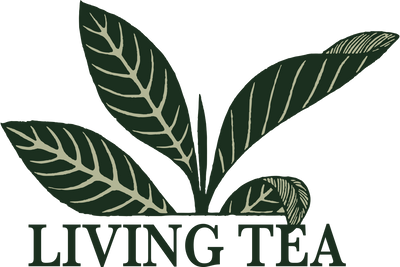As the air cools and the season deepens, we enter a time when nature itself invites stillness, reflection, and gentle surrender. Autumn carries a quiet wisdom—an invitation to release what has run its course, to soften into presence, and to allow the natural rhythm of things to unfold without force.
This week, we explore what it means to practice Wu Wei, the Taoist principle of non-doing. Wu Wei does not mean apathy or inaction, but rather a deep attunement to the natural flow of life. It’s a reminder that effort alone doesn’t always bring harmony. In fact, when we loosen our grip, things often find their own balance.
In the Way of Tea, this truth reveals itself again and again. When we stop trying to perfect each pour or manage every detail, tea begins to teach us. The leaves open in their own time. The fragrance shifts with each breath. The water finds its path into the bowl. The more we let go, the more alive the moment becomes. Through this practice, tea becomes our teacher—guiding us to slow down, breathe, and remember that balance is often found not in effort, but in ease.
This Week in Practice
Practicing Wu Wei: Letting the Tea Guide the Ritual
Autumn invites us to release the impulse to over-direct and instead let things take their natural course. In your next tea session, see what happens when you approach the ritual with curiosity rather than control.
Perhaps you usually focus on precision—temperature, timing, volume—but this week, experiment with setting that aside. Notice the steam rising from the kettle, the leaves unfurling, the sound of water meeting clay. Allow yourself to be guided not by perfection, but by presence.
Practice Prompt:
During a tea session this week, approach the brewing and serving with attention but without rigid control. Let the process unfold naturally, observing temperature, aroma, and taste without judgment. If your mind wants to analyze, gently return to the sensation of the moment.
Micro-Practice:
Choose one aspect of the ritual—water temperature, leaf amount, pouring, steeping length, etc.—and intentionally let go of control. Notice what shifts when you allow the tea to lead the way.
Five Element Insights
Finding Clarity Through Release
In the Five Element tradition, Metal represents refinement, discernment, and clarity. It’s the element of letting go—of pruning back what is no longer needed so that the essence can shine through. Just as trees shed their leaves to prepare for winter’s stillness, we, too, are invited to release attachments, expectations, and the unnecessary weight we carry.
Through this seasonal rhythm of release, clarity naturally emerges. When we stop holding on so tightly—to ideas, outcomes, or identities—we make space for what is essential to reveal itself. In this way, Wu Wei and the Metal element share a common teaching: that clarity is found through surrender, not striving.
Reflection Prompts:
-
Where in your life are you forcing outcomes instead of allowing natural flow?
-
What attachments or expectations can you release to create more space for presence?
-
How can you better recognize the interconnection between yourself, others, and the world around you?
What We’re Drinking
Wooded Valley (Dayi Menghai Shou)
Richly layered with flavors of hazelnut, wet leaves, and forest floor, Wooded Valley carries a balanced fermentation, slightly uplifting energy, and wonderful patience. Its natural storage in Guangzhou lends the tea a soft, mature depth, making it almost indistinguishable from an older shou puerh.
As the season turns, this tea feels grounding and steady—an ideal companion for early autumn’s introspection. Pleasant woodsy flavors rise through the layers, creating a smooth, mellow finish that invites slow, mindful drinking.
Current Inspiration
Creative Works that Pair Well with Tea
“Tao: The Watercourse Way” by Alan Watts
A profound reflection on the flow of life, this timeless work invites us to trust in nature’s rhythm—a perfect companion for this week’s practice of Wu Wei. In Tao: The Watercourse Way, Alan Watts explores how true wisdom arises not through striving, but through attunement. He reminds us that water does not force its way forward; it moves effortlessly with the terrain, adapting to each curve and obstacle without resistance.
Watts’ writing offers a mirror for tea practice itself: an art rooted in fluidity, patience, and surrender. Just as the stream finds its path through stillness and flow, so too can we navigate life with grace when we release our need to control every outcome. Each cup of tea becomes a small embodiment of this truth—an opportunity to pause, breathe, and trust that the way reveals itself when we stop pushing against it.
Friends of Living Tea
Bibi Borja and The Davie Tea Hut (Davie, FL)
Through tea and sound healing, Bibi Borja creates immersive spaces of stillness that weave together resonance, ritual, and renewal. The Davie Tea Hut has become a sanctuary for connection and quiet transformation—an echo of the same principles we explore through the Way of Tea.
Find them on Instagram:
@bibi.borja
@davieteahut

